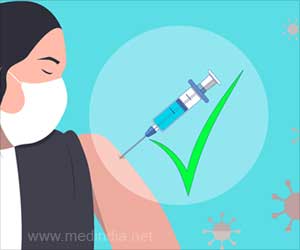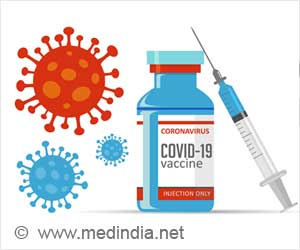
‘The proteins, called ephrin ligands, act as a biomarker to help physicians identify patients at risk for serious illness.’





“Ephrins are detectable in saliva samples and could serve as adjunct markers to monitor COVID-19 disease progression,” said study author Erika Egal, DVM, PhD, a postdoctoral fellow in the laboratory of Patrice Mimche, PhD, in the department of pathology at University of Utah Health in Salt Lake City. “We can collect saliva without harm or discomfort for most patients, which can reveal patient responses to COVID-19 and potentially guide care.”Egal will present his findings at the American Physiological Society Annual Meeting during the Experimental Biology (EB) 2022 meeting, held in Philadelphia on April 2 to 5, 2022.
For this study, the researchers examined saliva samples collected from patients admitted to the Utah Hospital emergency department with respiratory symptoms. Sixty-seven patients tested positive for COVID-19 infection, and 64 patients did not. They found that the presence of ephrin ligands in saliva was strongly associated with the diagnosis of acute COVID-19.
The researchers said the findings could help shed light on the biological processes involved in severe reactions to COVID-19 infection. Previous studies suggest that ephrins may play a role in injury and inflammation. Scientists say more research is needed to determine whether ephrin concentrations are associated with hospitalization, dangerous illness, or death. In addition, with the emergence of new virus variants, it is difficult to say whether existing COVID-19 tests can accurately diagnose infections involving new variants. Eagle said that the search for ephrins in saliva could provide a simple, non-invasive way to provide conclusive evidence when there is a discrepancy between test results and the clinical picture.
“Saliva is packed with information beyond detecting the COVID-19 infection itself,” said Mimche. “We demonstrate that immune cells, cytokines and soluble proteins can be reliably measured from saliva samples. Our findings provide a starting point for investigations looking into causal pathways between infection and bad medical outcomes.”
Advertisement
Source-Medindia











